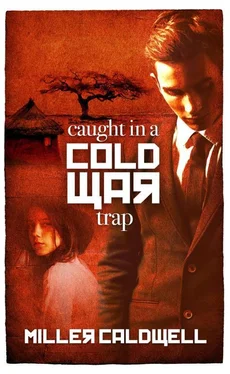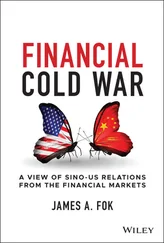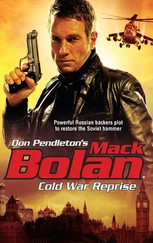The relationship lasted this length of time because Olga was by now my Russian tutor. I had studied Russian in my final year at school, but with her support, it led to me gaining excellent results in the language. Of course, nobody knew about Olga. I even kept her correspondence from my parents, sometimes with difficulty. I became somewhat furtive in gathering the mail. When they eventually learned of my pen-friend in Russia they decided it an impossible relationship which would wither in time. Fortunately, their suspicions were not raised any higher.
The Russian language was on offer as a subsidiary subject, after French and Spanish, on the modern languages degree course at Glasgow University. I enrolled. Neither did this fact worry my parents. They felt that eventually after the cessation of the Cold War, the rapprochement was necessary and that knowing the Russian language would be a good way to join the Foreign Office, perhaps. I did not dissuade them.
Before the start of my first term at Glasgow University, I received a letter from London. It was from the Russian Ambassador’s office once more. Inside was a cheque to cover my living expenses for the first year.
I looked at the cheque. £2,000.
I had never held such an amount of money in my hands before. It would more than cover all my accommodation, books, meals, and I guessed several beers. Yet I had also been given, by the British government, the maximum student grant, as my father’s stipend was deemed insufficient to support me.
I focussed on the passage in the letter where it stated ‘for the first year’. Did that mean similar amounts would arrive in time for each of my four years? What if I sent the cheque back to the embassy? Would they be offended?
I held on to the cheque for four days before deciding to bank it. During that time I wondered why they were so generous. Surely my original letter was forgotten by now? It could hardly be a bribe to engage in work for them as I was now engaged in a lengthy study. In the end, I put it down to good fortune; to a moment of serendipity. After all, I had been corresponding with Olga for some considerable time and had not been compromised in any way.
When I told her I was studying Russian as well on the modern languages course, Olga was delighted and ensured I was fluent in Russian and could write in their Cyrillic script with ease. This pleased my lecturers.
My new Glasgow address, a small flat in Gardner Street in the west end, was ideal in many ways. It was quite near the university and gave me the privacy my mail required. I arranged for it to be re-directed from home of course. Olga too was at university. She was already in her second year at the Lomonosov Moscow State University studying biochemistry.
Over the next four years her letters arrived sporadically and mine were sent at a similar rate. Their infrequency upset me at first. After all, she had given me a good grounding in their language, and I hoped to continue to write in Russian to her.
Meanwhile, without fail, the London embassy sent me radio listings. I did tune into Radio Moscow from time to time, naturally. Balalaika music was a change from Scottish country dancing tunes, but I’d give the wrong impression if you thought I returned from lectures and spent each night in the flat. I had a social life. I played rugby for the university and I joined the music society. I also attend meetings of the Russian club.
The club’s membership included a collection of leftist Marxist students in love with the 1917 revolution and sympathetic to the land and people who suffered so much, as allies, in World War Two. They knew Conservative governments were traditionally hostile to Russian communism, so the change from Labour’s Harold Wilson to high Tory Edward Heath strengthened the club’s membership. There was talk of a visit to Russia. As well as Moscow, Leningrad was high on their agenda, but finances held them back. I wondered if my wealth could be put to the common good, but having what was then a considerable amount of money was likely to alienate me in their communist eyes.
Then I found a girlfriend. Or perhaps she found me. It was a very sudden, mutual and powerful attraction. She was not from the Russian club. I met her at a music society weekly meeting.
Morag Sutherland was a Lanarkshire girl from Motherwell. Lean and sporty, she had a smile which melted my heart. Medicine was her subject and I knew she’d still be studying after I graduated, which might end our blossoming relationship. But what the heck? I had to start romancing sometime, somewhere.
We drank coffee during the day and at the weekends, in the evenings, she sipped gin in the pubs we visited while I drank beer, or more often cider. We spoke about our upbringings and found a few names of contempories we knew in common. She told me she was glad to meet someone who was not a medic. All her fellow students were, of course, but so too was her father, mother, brother and sister. No wonder she was pleased to encounter me, I thought. It wasn’t long before we held hands in public. It felt good to announce we had each other.
We visited each other’s flats. I stroked my hands through her lush black tresses, and it wasn’t long before more intimate strokes satisfied us both. It took us to another level and a commitment to one another, as many student affairs did likewise. After all, she was my first girlfriend, and I was her first boyfriend. It was new territory for us both and we were glad to progress our discoveries in harmony.
I wrote to Olga informing her of my new acquaintance. I wondered how she would react, as our letters had the intimacy of a brother/sister relationship. I need not have worried. She congratulated me and told me she had a boyfriend. She had had him for more than a year. That saddened me. She had never told me about him. What else could she be keeping from me?
After four years of study, graduation called for a family gathering. My parents attended the Bute Hall, where the ceremony took place and they met Morag for possibly the fourth or fifth time. Photos were taken of me in a black gown with a purple hood signifying that I was now a graduate Master of Arts. I clasped the rolled certificate in my hands. Then my father offloaded the qualification while my mother took photos of me and some with Morag clinging on to my arm. This ritual was replicated all over the university lawns and a bright sunny day in June was appreciated by all—a relief for so many Glaswegians.
The following morning I began to think about what I would do with my qualification. I contemplated teaching languages in a secondary school. That meant a year of further study, of course. I had better get my application in. But which college of education should I approach? One in Glasgow, Morag hoped, as I did too.
Then on Saturday morning, as I left the kitchen, I saw an envelope fly through the letterbox and land like a plane as it taxied to a stop on the varnished wooden hall floor. It was a letter from the Russian Embassy containing a card congratulating me on my degree.
In the accompanying pages I learned I was invited to the Russian Embassy, an invitation which came with a rail ticket. I could hardly refuse to attend—the golden goose had, after all, seen me comfortably through my student days. It seemed appropriate that I should go to show my appreciation.
Chapter 3
A Visit to the Russian Embassy
When I told Morag I had an invitation to visit London she was curious. I suppose she feared I might get a job there and the distance would put our relationship under strain.
I came clean.
‘The Russian Embassy?’ she said raising her voice.
‘Yes, well you know I studied Russian, I speak and write the language?’ I said as if butter would not melt in my mouth. It was information she knew anyway.
Читать дальше












